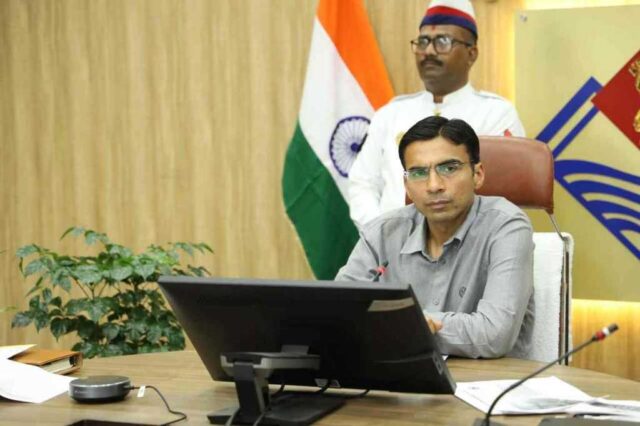Now the Gujarat government said in the court, religious freedom does not include the right to convert

The Gujarat government has said in the Supreme Court that the right to religious freedom does not include the right to convert others. The government has requested the apex court to set aside the High Court’s stay on the provision of a state law. Under this law, prior permission of the District Magistrate is necessary for conversion through marriage. The Gujarat High Court, through its orders dated 19 August and 26 August 2021, had stayed the implementation of Section 5 of the Religious Freedom Act, 2003 by the state government.
In its affidavit filed in response to a PIL filed by advocate Ashwini Upadhyay, the state government said it has filed an application seeking to set aside the stay of the High Court, so as to stop conversions through force, inducement or fraud in Gujarat. to implement the provisions of. The affidavit said, ‘The right to freedom of religion does not include the fundamental right to change the religion of others. The said right does not include to convert anyone by fraud, deceit, force, inducement or other means.
The State Government stated that the meaning and implication of the word ‘propaganda’ in Article 25 of the Constitution was discussed in detail in the Constituent Assembly and it was included only after clarifying that the right to proselytize is a fundamental right under Article 25. will not be included.
The state government said the constitutionality of the Madhya Pradesh Freedom of Religion Act, 1968 and the Orissa Religious Freedom Act, 1967 were challenged before a constitution bench in 1977. Both the laws are similar to the Gujarat Religious Freedom Act, 2003.
The Government has said, ‘It is humbly submitted that the Act of 2003 is a validly constituted law and in particular the provisions of Section-5 of the Act of 2003, which are in force for the last 8 years, so as to achieve the objectives of the Act of 2003. and maintain public order within Gujarat by protecting the rights of weaker sections of the society including women and economically and socially backward classes.
The state government said appeals against High Court orders also mainly deal with the issue of religious conversion through force, inducement or fraud, like the PIL filed by Upadhyay. It is stated by the Government that the High Court has, under the impugned interim orders, stayed the operation of Section 5 of the 2003 Act, which is actually an ‘enabling provision’ of people to convert from one religion to another of their own free will. Is.
It states, “At the same time, the exercise of taking prior permission also prevents forced conversions and protects the freedom of conscience given to all citizens of the country.” It has been submitted by the government that the steps prescribed in Section 5 are precautions to ensure that the process of leaving one religion and converting to another is authentic, voluntary and free from any coercion, inducement and fraud.
The state government said that while passing the order, the High Court did not take into account that the very purpose of the law would be defeated by staying the implementation of Section 5 of the 2003 Act. Significantly, the apex court had said on November 14 that forced conversions could pose a threat to national security and affect the religious freedom of citizens. It asked the Center to take steps and make serious efforts to deal with this “very serious” issue.
The bench had said, ‘This is a very serious matter. Serious efforts should be made by the Center to stop the forced conversions. Otherwise a very difficult situation will emerge. Tell us what action you propose to take. You have to intervene.
The court had said, ‘The issue of alleged conversion, if found to be correct and true, is a very serious issue, which may ultimately affect the security of the nation as well as the freedom of religion and conscience of the citizens. . Therefore, it is better that the Central Government makes its stand clear and it/others (State Governments) file an affidavit on what further steps can be taken to stop such forced conversions through force, inducement or fraud.
At the same time, on November 29, the Central Government had also said in the apex court that the right to religious freedom does not include the right to convert others. Laws overcoming such practices are necessary to protect the rights of the weaker sections of the society.
In his petition, Upadhyay has requested the Supreme Court to direct the Center and the states to take strict measures to curb religious conversions that take place through “intimidation, allurement and lure of money”.






